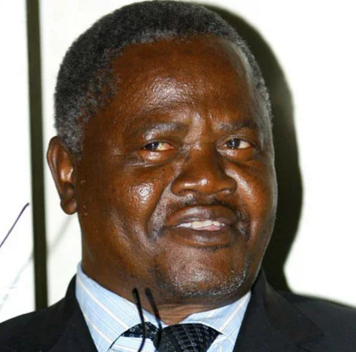Prof Chris Wanjala, the author of Memories We Lost, the acclaimed short story collection, died in 2018. Given his laudable achievements in literature as an academic, his untimely death elicited fond tributes and eulogies then. Four years down the line, how time flies, it is worth discussing, even briefly, his mark within the academy generally, and literary studies specifically, just to pay homage to his diverse contribution to literature.
I pen this out of a personal belief that in order to prevent the erasure, from the public mind as well as institutional memory, of Wanjala’s impact in the literature discipline, it is important to write in remembrance for posterity.
Literary Activism through media.
I first encountered Chris Wanjala’s writing by way of reading his articles in the Daily Nation. This is a testament to the unorthodox way I familiarized myself with the work of the man. This is against the typical way of first having to read an author’s text as a set book, in the school setting. As an academic, and in the mainstream media space, he worked to remind people of the arts in the public domain. The depth of his arguments, arguably right or wrong, pioneered the Arts and Books columns of the paper as an avenue for engaging in debates about literature discourses. This was complimented by the numerous comments on topics of interest via columns, essays and radio appearances.
However, this has waned. In a time when the value of literary journalism is in many ways disregarded, a recollection of Chris’ literary writings easily proves otherwise. In fact, Wanjala’s commentaries proved to be instrumental in creating a regional identity for literature. This was given the fact that one, he wrote as a practising academic and two to counter the invited voices about East African literature. To him, this was an enabler of interactions with the net effect of providing and influencing dialogue between scholars and the community. Perhaps, something ought to be done to revitalize literary journalism.
Wanjala was a frequent guest at The Books Cafe on KBC English Service, the only show of its kind in Kenya. He was hosted by Khainga O’okwemba, a veteran journalist, with whom they’d have discussions about a range of books, topics and subjects all relating to literature. Much of these discussions can be found online for anyone to peruse thanks to KBC English Service.
Intellectual harbinger
Born in 1944 in Bugoma, Western Kenya, Christopher Lukorito Wanjala did extensive research and studies in orature creating an elaborate body of work. This was mainly through his writings, radio discussions, and university teaching with stints at Egerton University and the University of Nairobi.
His intellectual contributions span African literature and East African literature with a specific focus towards literary criticism. As an influential figure in the African orature intellectual conscience, he gave impetus to methods of orature study in Kenya. This was especially on how to study performing arts. This is a position he cemented with the co-founding of the Kenya Oral Literature Association (KOLA). It was domiciled at the department of literature at the University of Nairobi.
Wanjala’s academic engagements extended beyond the lecture hall. He enjoyed cordial relations with the publishing industry, academia and society, both in Kenya and beyond. However, the most notable, yet often overlooked, is his role just after independence.
Post-independence, all over the continent, art and artists were vilified mainly due to the political undertones of literature. Wanjala would form intellectual solidarities across the divide as they were important. This profited the literary landscape by ensuring that there was a sense of community amongst those involved in literary production. Positioned in Nairobi, he would play host to the likes of Austin Bukenya, Eskia Mphalele, David Rubadiri and John Ruganda among others. They’d build long-lasting friendships as evidenced by the author’s numerous visits to his lectures.
In his book Seasons of Harvest, Wanjala insists on translation as a way of making accessible writing from other languages in African writing. In a peculiar manner, he suggests Swahili as a language worth exploring in translation. Additionally, he sees Swahili as an adequate form of expression within East African literature. Inadvertently, this appeals to the language question that is a huge intellectual debate today. It shows his position on the development of a literary tradition that is devoid of an outright nationalistic stance by acknowledging, celebratory so, Mwalimu Nyerere’s translation of Merchant of Venice to Swahili.
Distinguished lecturer
Prof Chris Wanjala was and remains a giant in literary criticism. He was the first PhD graduand of literature at a Kenyan University. As a scholar, amongst his many offerings to the academy is his nuanced critique and study of orature. This has an overbearing if not an indelible mark. With his fluency in Lubukusu, Kiswahili and English languages, he excelled as a literary towering figure and critic.
To his students, Chris Wanjala remains one of a kind teacher. Strict and ardent, he’d don a fatherly character making his classes full of high content and technique, in equal measure. This had the effect of leaving the student with unrivalled understanding.
His teaching style was compounded by the fact that he was a performer. This meant memorable lecture experiences providing lasting impressions amongst the students. Perhaps, this was a direct effect of having been a student at the department and coming back as a teacher. This was a feat that distinguished him from his peers.
As far as teachers go, Wanjala was a motivated teacher with a key desire to see his students excel. Professor Chris Wanjala, you may be gone but, you are forever in our minds.

